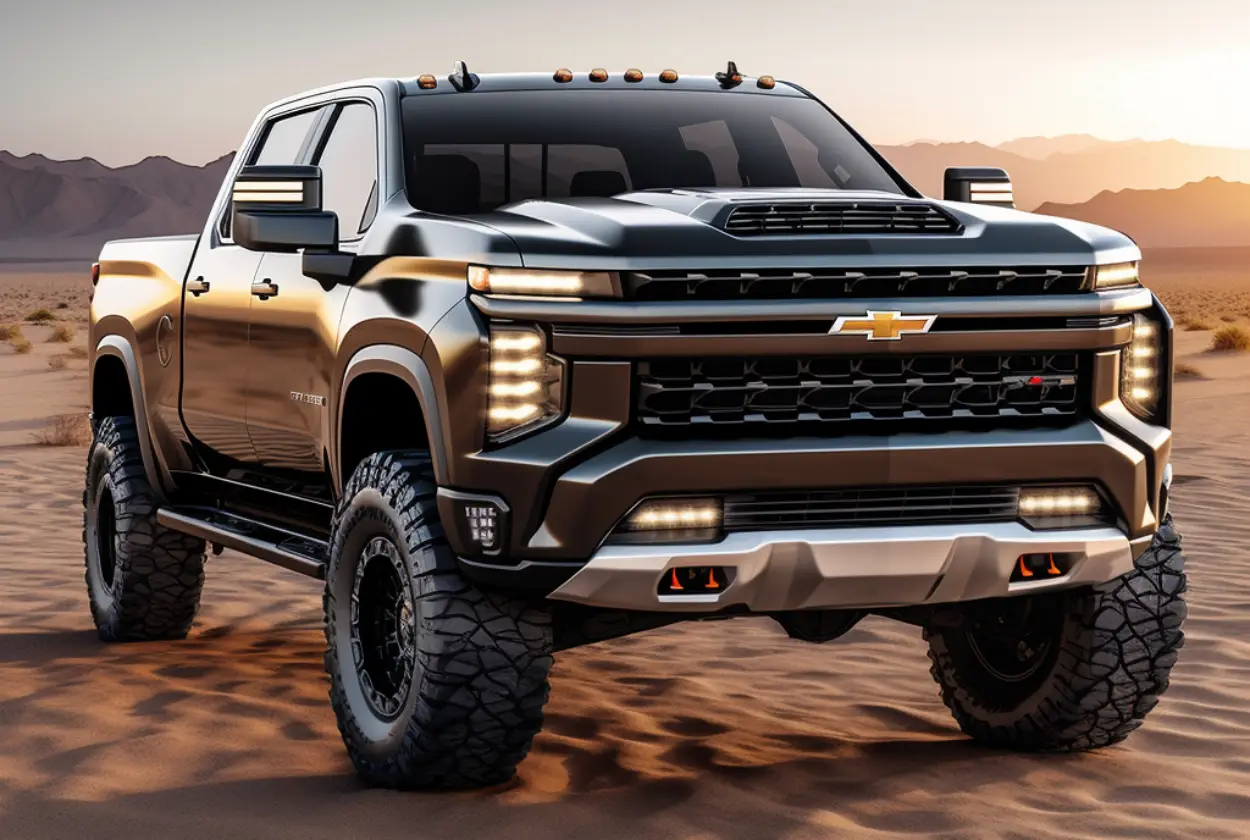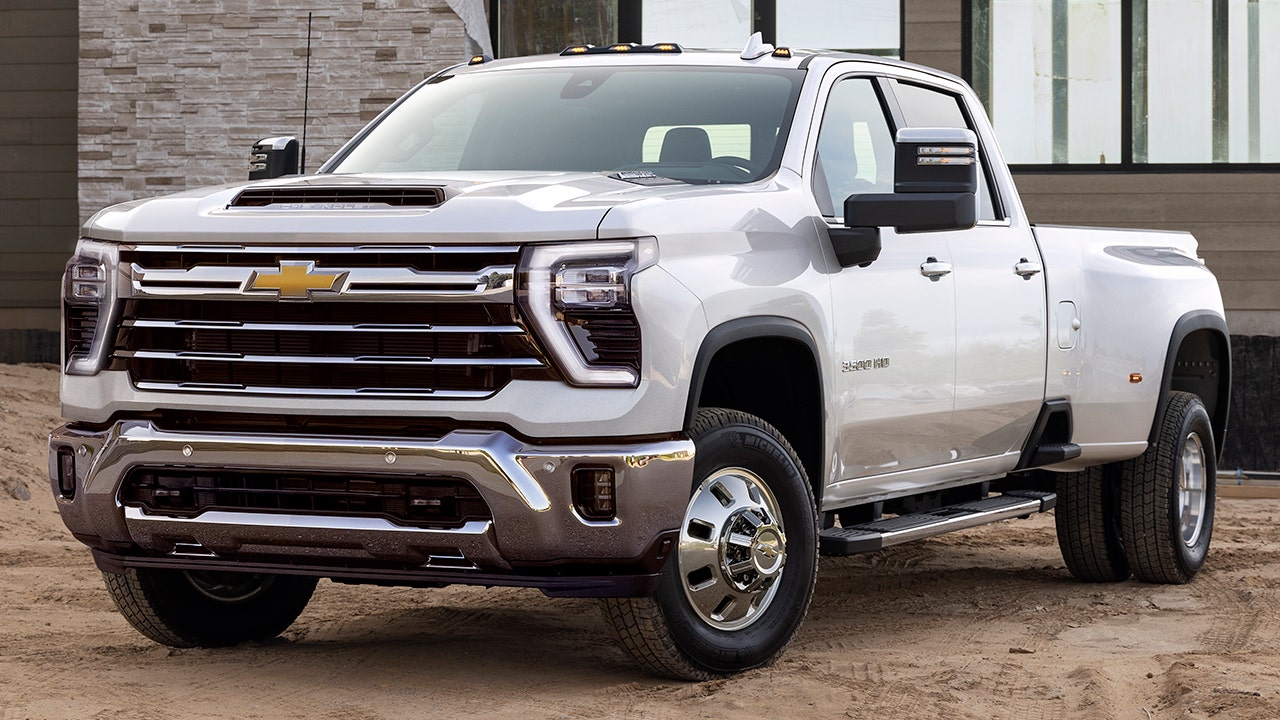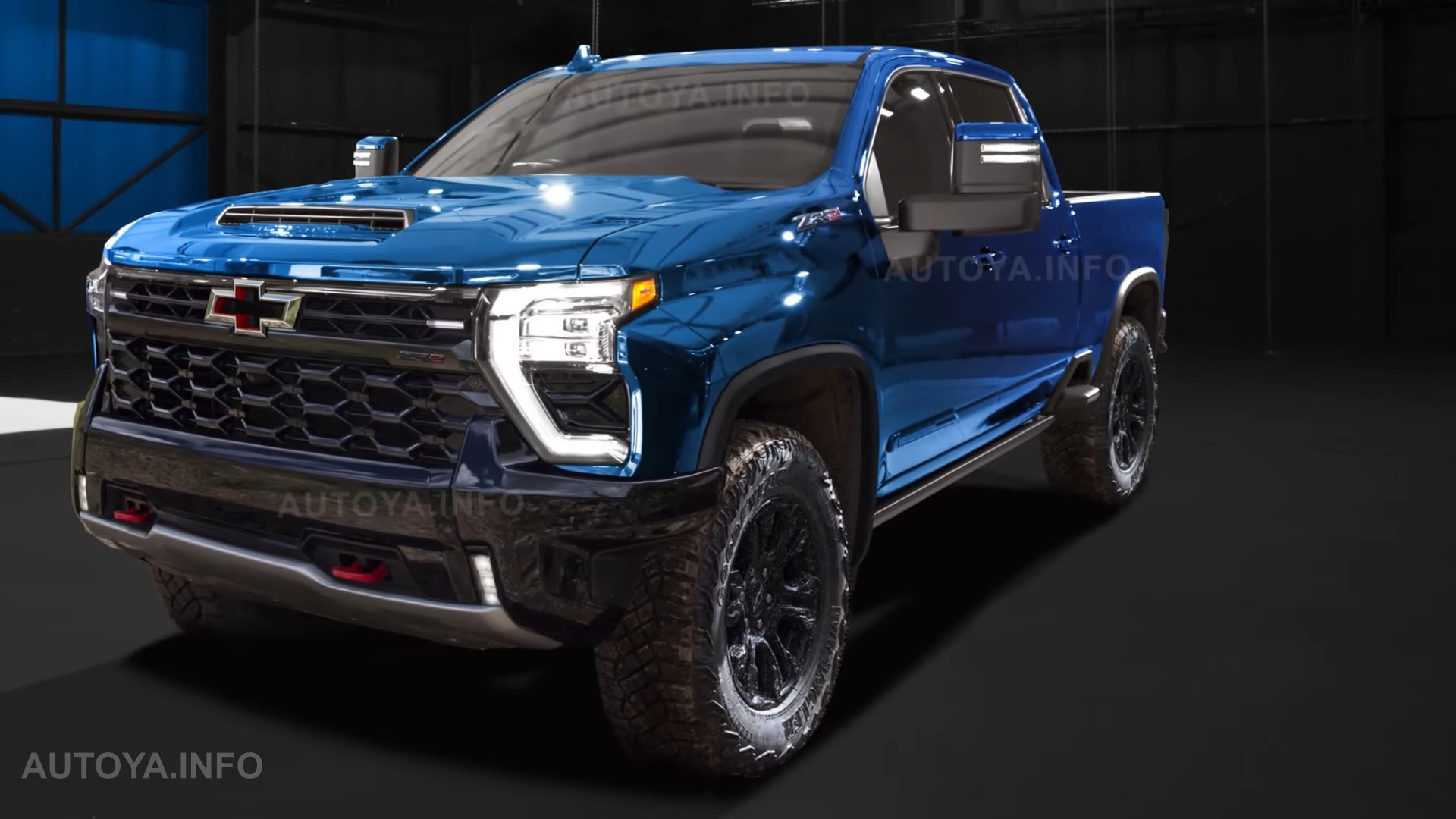Chevy 3/4 Ton Trucks For Sale: Your Comprehensive Guide to Finding the Ultimate Workhorse types.truckstrend.com
The search for a robust, reliable, and capable pickup truck often leads enthusiasts and professionals alike to the doorstep of the Chevy 3/4 ton. Known formally as the Chevrolet 2500 or 2500HD series, these heavy-duty trucks occupy a sweet spot in the market: more capable than a half-ton, yet often more manageable and less expensive than a full-ton dually. Whether you’re a contractor needing to haul heavy equipment, an RV enthusiast planning cross-country adventures, or simply someone who demands serious towing and payload capacity, a Chevy 3/4 ton truck for sale represents a compelling and often indispensable solution.
This comprehensive guide will navigate you through the world of Chevy 3/4 ton trucks, offering insights into their capabilities, the benefits of owning one, where to find them, crucial buying considerations, and practical advice to ensure you drive away with the perfect vehicle.
Chevy 3/4 Ton Trucks For Sale: Your Comprehensive Guide to Finding the Ultimate Workhorse
Understanding the Chevy 3/4 Ton Truck (2500/2500HD)
The "3/4 ton" designation is a historical payload rating, dating back to a time when trucks were literally rated by the weight they could carry in their bed. While modern 3/4 ton trucks can carry significantly more than 1,500 pounds (or 0.75 tons), the moniker has stuck. Chevrolet’s offerings in this class are primarily the Silverado 2500 and 2500HD (Heavy Duty), which replaced the C/K 2500 series in the late 1990s.
What sets a 3/4 ton apart from its lighter 1/2 ton (1500 series) counterpart? It’s all about beefier components designed for heavier loads and sustained rigorous use. This includes a stronger frame, heavier-duty suspension components (springs, shocks, axles), larger brakes, more robust transmissions, and often, more powerful engine options. These trucks are engineered for durability, offering a longer lifespan under demanding conditions compared to lighter-duty vehicles.
Why Choose a Chevy 3/4 Ton Truck? Benefits & Applications
Opting for a Chevy 3/4 ton truck brings a host of advantages for various needs:
- Superior Towing Capacity: This is arguably the primary reason many choose a 3/4 ton. With conventional towing capacities often exceeding 15,000 lbs and fifth-wheel/gooseneck ratings climbing much higher (especially with the Duramax diesel engine), these trucks can effortlessly handle large RVs, horse trailers, heavy equipment, and multi-car trailers.
- Exceptional Payload Capacity: Beyond towing, the reinforced chassis allows for substantial payload. Whether it’s a slide-in camper, a bed full of gravel, or a pallet of building materials, a 2500HD can manage loads that would overwhelm a 1/2 ton truck.
- Durability and Longevity: Built for strenuous work, these trucks are inherently more robust. With proper maintenance, a Chevy 3/4 ton can easily surpass 200,000 or even 300,000 miles, making them a wise long-term investment.
- Powerful Engine Options: Chevrolet has historically offered potent powertrains in its 3/4 ton line. Key among them are the Vortec gasoline V8s (e.g., 6.0L, 6.6L) known for their reliability and respectable power, and the legendary Duramax diesel engine paired with an Allison transmission, renowned for its immense torque, fuel efficiency under load, and exceptional durability.
- Versatility: While built for work, modern 3/4 ton trucks, especially in Crew Cab configurations, offer comfortable interiors, advanced technology, and safety features, making them suitable for daily driving, family hauling, and even adventurous off-road excursions (particularly 4×4 Z71 models).

Navigating the Market: Where to Find Chevy 3/4 Ton Trucks For Sale

The market for Chevy 3/4 ton trucks is robust, offering numerous avenues to find your ideal vehicle:
- New Car Dealerships: If your budget allows, purchasing a brand-new Silverado 2500HD ensures the latest technology, full warranty coverage, and the peace of mind of being the first owner.
- Used Car Dealerships: These offer a vast selection of pre-owned 3/4 ton trucks across various model years, trims, and price points. Many offer certified pre-owned (CPO) programs with extended warranties and rigorous inspections.
- Online Marketplaces & Aggregators: Websites like AutoTrader, CarGurus, Cars.com, and Kelley Blue Book list vehicles from both dealerships and private sellers. For private party sales, platforms like Craigslist and Facebook Marketplace can yield good deals, but require extra caution.
- Auctions: Public and government auctions (e.g., municipal surplus, repossessions) can offer significant savings, but vehicles are often sold "as-is" with limited opportunity for inspection, making them higher risk.
- Private Sellers: Buying directly from an individual can often secure the best price, as you avoid dealer markups. However, you’ll need to handle all paperwork and perform thorough due diligence yourself.

Key Considerations When Buying a Used Chevy 3/4 Ton
Purchasing a used heavy-duty truck requires careful evaluation to ensure you get a reliable vehicle that meets your needs.
- Budget: Beyond the purchase price, factor in insurance costs (often higher for HD trucks), fuel expenses (especially for diesels or large gas engines), and potential maintenance/repair costs.
- Intended Use: Be clear about your primary purpose. Do you need maximum towing, or will you mostly be hauling lighter loads? This will influence your engine choice, cab configuration, and bed length.
- Engine Type (Gas vs. Diesel):
- Gas: Generally less expensive to buy and maintain, quicker warm-up in cold weather, often preferred for lighter, intermittent towing or daily driving.
- Diesel (Duramax): Higher initial cost, more expensive maintenance (fuel filters, DEF), but offers superior torque for heavy towing, better fuel economy when loaded, and exceptional longevity. Ideal for frequent, heavy hauling.
- Drivetrain (2WD vs. 4WD): 2WD models are typically cheaper, lighter, and more fuel-efficient. 4WD is essential for off-road use, unpaved work sites, or challenging winter weather conditions.
- Cab Configuration & Bed Length:
- Regular Cab: Two doors, typically 8-foot long bed. Best for pure work or maximum maneuverability.
- Extended/Double Cab: Four doors (rear doors smaller), typically 6.5-foot or 8-foot bed. Good compromise for occasional rear passengers.
- Crew Cab: Four full-size doors, spacious rear seating, typically 6.5-foot or 8-foot bed. Most popular for family use or crews.
- Mileage and Condition: Don’t be immediately deterred by high mileage on a heavy-duty truck, especially a diesel. A well-maintained 200,000-mile Duramax can be a better buy than a neglected 100,000-mile truck. Inspect for rust (especially frame and body panels), excessive wear on the interior, and signs of neglect.
- Maintenance History: This is CRITICAL. Ask for service records. Look for consistent oil changes, transmission fluid services, differential fluid changes, and any major repairs. A lack of records is a red flag.
- Vehicle History Report (CarFax/AutoCheck): Always run a report using the VIN. This can reveal accidents, flood damage, salvage titles, odometer discrepancies, and past ownership.
- Pre-Purchase Inspection (PPI): Non-negotiable for a used truck. Have an independent, trusted mechanic (preferably one familiar with heavy-duty trucks or diesels) perform a thorough inspection. They can identify hidden issues, assess wear on critical components, and give you peace of mind.
Tips for a Successful Purchase
- Define Your Needs: Before you start looking, list your primary uses (towing capacity, payload, passenger space, 4×4). This will narrow your search.
- Research Common Issues: Look up common problems for specific model years or engine types you’re considering (e.g., injector issues on early Duramax, transmission problems on certain gas models).
- Test Drive Thoroughly: Don’t just drive around the block. Take it on the highway, accelerate hard, brake firmly, test 4WD (if applicable), listen for abnormal noises, and check all electrical components (windows, A/C, radio, lights).
- Check for Modifications: Be wary of heavily modified trucks, especially those with performance tunes or lift kits, as these can put undue stress on components.
- Negotiate: Always negotiate the price. Be prepared to walk away if the deal isn’t right.
- Understand Financing and Insurance: Get pre-approved for a loan if financing, and get insurance quotes before committing.
Potential Challenges and Solutions
- Finding the "Right" Truck: The specific combination of cab, bed, engine, and trim can be elusive. Solution: Be patient, expand your search radius, and consider slightly older or newer model years.
- High Fuel Costs: Heavy-duty trucks, especially older gas models, can be thirsty. Solution: Factor fuel costs into your budget, or consider a diesel if you plan on heavy towing.
- Maintenance Expenses: Parts and labor for heavy-duty components can be more expensive. Solution: Factor this into your budget, and prioritize trucks with a good maintenance history. DIY some basic maintenance if you’re handy.
- Rust: Especially prevalent in trucks from northern climates. Solution: Thoroughly inspect the frame, cab corners, rocker panels, and wheel wells. Look for trucks from southern or western states if possible.
- Hidden Mechanical Issues: The biggest risk with used vehicles. Solution: A mandatory pre-purchase inspection by a qualified mechanic is your best defense.
Concluding Summary
A Chevy 3/4 ton truck for sale offers an unparalleled blend of power, durability, and versatility, making it an ideal choice for serious work and heavy-duty recreation. By understanding what makes these trucks special, diligently researching the market, and meticulously inspecting any potential purchase, you can confidently find a vehicle that will serve your needs reliably for years to come. Remember, patience and thoroughness are key to securing a great deal on your next heavy-duty Chevy.
Estimated Price Table for Chevy 3/4 Ton Trucks For Sale
Please note: Prices are highly variable based on geographic location, exact mileage, condition, trim level, 2WD/4WD, specific engine, and recent market demand. This table provides broad estimates for the purchase price of used models. New trucks are typically $50,000 – $80,000+ depending on trim and options.
| Model/Year Range (Used) | Engine Type | Estimated Price Range (USD) | Key Features / Notes |
|---|---|---|---|
| 2020-Present Silverado 2500HD (T1XX) | 6.6L Gas / 6.6L Duramax Diesel | $45,000 – $75,000+ | Latest generation, modern tech, high towing capacities. Gas is more affordable, Duramax holds value. |
| 2015-2019 Silverado 2500HD (K2XX) | 6.0L Gas / 6.6L Duramax Diesel | $30,000 – $55,000 | Popular generation, good balance of modern features and value. Duramax models are significantly pricier. |
| 2007-2014 Silverado 2500HD (GMT900) | 6.0L Gas / 6.6L Duramax Diesel | $15,000 – $35,000 | Strong, reliable trucks. Look for well-maintained Duramax (LML, LMM). Gas models offer great value. Some pre-DEF (LMM) Duramax are sought after. |
| 1999-2006 Silverado 2500HD (GMT800) | 6.0L Gas / 8.1L Gas / 6.6L Duramax Diesel | $8,000 – $20,000 | Workhorse generation. Early Duramax (LB7, LLY, LBZ) can be very reliable but check for injector issues (LB7). 8.1L gas offers massive torque. Great value for a work truck. |
| 1988-1998 C/K 2500 (GMT400) | 5.7L/7.4L Gas / 6.5L Diesel | $4,000 – $12,000 | Classic body style, simpler mechanics. Can be found cheaply, but may require more maintenance. 7.4L (454 big block) is powerful. 6.5L diesel can be problematic. Collectible condition can fetch more. |
| Older Models (Pre-1988) | Various Gas/Diesel | $2,000 – $10,000+ | Price highly dependent on condition, originality, and specific model. Often project trucks or restored classics. |
Frequently Asked Questions (FAQ)
Q1: What does "3/4 ton" mean, and is it accurate today?
A1: Historically, "3/4 ton" referred to a truck’s payload capacity (1,500 pounds). Today, it’s more of a class designation for heavy-duty trucks like the Chevy 2500/2500HD. Modern 3/4 ton trucks can carry significantly more than 1,500 pounds, with payload capacities often exceeding 3,000-4,000 pounds, depending on configuration.
Q2: What’s the main difference between a Chevy 2500 and a 2500HD?
A2: In modern Chevrolet trucks, the "HD" (Heavy Duty) designation is essentially standard for the 2500 series. While older generations might have had a non-HD 2500, current models are all built to heavy-duty specifications. The HD signifies stronger frames, suspensions, axles, and powertrain components compared to a 1500 (half-ton) model.
Q3: Should I choose a gas or diesel engine for my Chevy 3/4 ton?
A3: This depends on your primary use.
- Gas (e.g., 6.0L, 6.6L Vortec): Generally cheaper to buy and maintain, better for short trips, lighter towing, and daily driving.
- Diesel (Duramax): More expensive initially and for maintenance, but offers significantly more torque for heavy towing, better fuel economy when heavily loaded, and a longer lifespan. Ideal for frequent, heavy hauling or long-distance towing.
Q4: How much can a Chevy 3/4 ton truck typically tow?
A4: Towing capacity varies greatly by model year, engine, drivetrain (2WD/4WD), and axle ratio. However, most modern Chevy 2500HD trucks can conventionally tow between 14,000 and 18,500 pounds, with fifth-wheel/gooseneck capacities often exceeding 18,500 pounds (especially with the Duramax diesel). Always check the specific truck’s rating in its owner’s manual or door jamb sticker.
Q5: What are the most important things to check when buying a used Chevy 3/4 ton?
A5:
- Maintenance Records: Look for a consistent service history.
- Rust: Inspect the frame, cab corners, rocker panels, and wheel wells thoroughly.
- Engine & Transmission: Listen for unusual noises, check fluid levels and condition.
- 4WD System: If applicable, test it thoroughly in both high and low range.
- Tires & Brakes: Check wear, as these can be expensive to replace on HD trucks.
- Pre-Purchase Inspection (PPI): Have a trusted mechanic inspect the vehicle before purchase.
Q6: Are parts expensive for Chevy 3/4 ton trucks?
A6: Generally, parts for heavy-duty trucks can be more expensive than for passenger cars or half-ton trucks due to their size and robust construction. Diesel engine parts and specialized components (e.g., specific transmission parts) can be particularly costly. Labor rates might also be higher due to the complexity of some heavy-duty repairs.
Q7: Can a Chevy 3/4 ton be a good daily driver?
A7: Yes, especially modern Crew Cab models. They offer spacious and comfortable interiors with many amenities. However, they are larger, less fuel-efficient, and can be harder to maneuver and park in urban environments compared to smaller vehicles. For someone who occasionally needs heavy-duty capability but also uses it for daily commuting, it’s a viable option.
